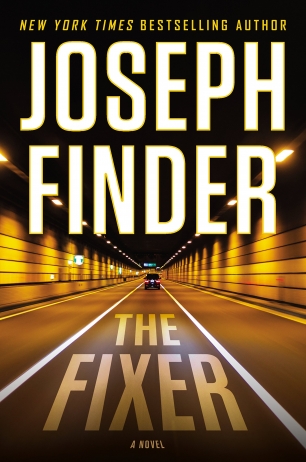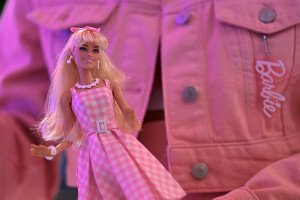Q&A: Joseph Finder’s The Fixer Digs into Boston’s Seedier Side

Author Joseph Finder’s latest novel The Fixer portrays two Bostons. There’s a modern one, with its celebrity chefs, glossy magazines, and expensive condo developments. And then there’s a grimier history: the Boston of the Combat Zone, the Irish mob, and Big Dig corruption. When the protagonist, underemployed investigative reporter Rick Hoffman, demolishes the wall of his father’s house and finds a pile of money, he starts digging into the seedy underbelly of the old Boston to learn about his dad’s past. The novel is out on bookshelves Tuesday, so we caught up with Finder to learn more.
Eric Randall: Is it fair to say this is your most Boston-centric novel to date?
Joseph Finder: Yeah, it is.
ER: What made you decide it was time to turn on your hometown?
JF: Well, I wanted to do a story that involved a family, and involved sort of long history. I was thinking of the movie Chinatown. And you know, Boston is rich with stories of corruption and organized crime. I felt it was fertile.
ER: What came to you first, the world of the story or the hook?
JF: The hook came first. It was, “What would happen if you demo’ed the wall of your house and found a big pile of money?” Immediately after that was, “All right, so what?” I knew I wanted it to be tied to a family situation, and I wanted it to involve Boston. I began to think about the old Combat Zone in Boston, and I sort of figured that, since it is gone now, it is actually a great thing to dig into. It was so colorful. It was our red-light district. And unfortunately, it’s gone now.
ER: You’ve lived in Boston for a long time. In researching the book, what did you learn about the city that you didn’t know before?
JF: I went to one of the last remaining strip clubs, the Glass Slipper. I bought a $10 beer and interviewed the girl who came right over to sit with me, and my questions were directed at “Who owns this place? Do you know?” She didn’t know. She wanted to know if this was my first time in Boston, all the usual things. I was amazed to discover how little remains of the Combat Zone. I was interested to read about how it died, how the land got bought up and turned into the Ritz-Carlton.
ER: That strip club interview sounds nearly identical to a scene that appears in the book. Is it helpful writing about an investigative reporter, in that your job researching the book mirrors your character’s job?
Yeah, and I actually spent a good amount of time talking to an investigative reporter for the Boston Globe. And I asked him a lot about the Big Dig and corruption. And I actually talked to a big contractor who was involved in the Big Dig to ask him how bribery works, and that was actually very interesting. [That person suggested] there’s a 10:1 ratio for bribes. If you’re bidding on a job that can make you $1 million, the accepted amount to bribe is $100,000.
ER: It sounds so bureaucratic.
JF: It’s amazing.
ER: Readers are always interested in how closely a novel adheres to reality. And I think Boston readers will be especially interested because this subject is so personal. How much authorial license goes into your portrayal of the city?
I shoot pretty close to reality in the books. The fact remains that the Big Dig was not only the biggest construction project in American history, it also brought an infusion of a huge amount of cash. There were documented cost overruns and payoffs and coverups. Of course there were court cases. But of course there are always payoffs that don’t get caught.
ER: You’ve talked elsewhere about your father’s passing providing the novel with direction.
JF: Sure, the book kind of morphed when my father died. It turned into a book a lot more about fathers and sons. It’s very funny the way this happens. I was intending to write a story about the discovery of cash and what kind of conspiracy this could unveil. I knew the money would have something to do with the main character’s father, but the more I wrote, the more I wanted it to be about his ambivalent relationship with his father. I wanted it to turn into a reconciliation of that relationship.
ER: It’s funny to hear how that came about partway through the process because it feels so thematically central to the book.
JF: Right. But basically my father’s death altered the course of the book. I turned it into a story about fathers and sons.
ER: The book offers a bleak portrayal of Boston’s magazine industry which, for obvious reasons, intrigued this reader. Did you set out wanting to depict that world?
JF: It came up as I was working on the book. In the beginning, I knew I wanted this character to be working for a very glossy magazine with profiles of the rich, and I wanted him to have an investigative reporter background. But you know, the big story is about the declining world of magazines. And since, in the plot, he is fired because the magazine is downsizing to a web-only product, I couldn’t avoid the subject. I talked to my brother [Henry Finder] who is the editorial director of the New Yorker magazine, and he’s very clued into those kinds of things, as well.
ER: Well, you nailed the obnoxiousness of clickbait headlines at websites like Upworthy.
JF: It was totally Upworthy!


